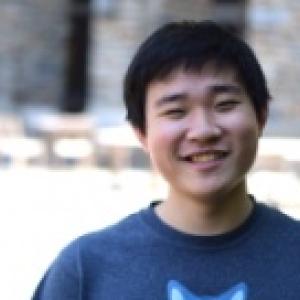Gong Lab
We're interested in understanding brain function using a combination of genetically encoded sensors and optical techniques. We use genetically encoded tools to target neurons with specific genetic types or specific projection pathways, and use optical microscopy to measure or change the activity of the selected neurons. By employing and developing tools in both categories, we study brain circuitry by recording, perturbing, and controlling brain activity in various preparations.
Gong Research

We're interested in dissecting brain circuit and function by recording, perturbing, and controlling neural activity with the combination of optical microscopy and genetically encoded sensors and actuators. To accomplish these goals, we develop, characterize, and unify a set of tools under the umbrella of "NeuroToolbox".
Reading out neural activity with fluorescent genetically encoded sensors enables chronic experiments that detail the dynamics of specific neuron populations. Similarly, existing genetically encoded optical actuators such as channelrhodopsin and halorhodopsin targeted to particular functional groups of neurons can modify behavior. We are actively improving sensor signal fidelity and actuator efficiency to support a greater diversity of neuroscience experiments. In the near future, this involves improving sensor brightness and dynamic range using molecular biology. As the sensors and actuator capabilities expand and near deployment for neuroscience experiments, our technologically based research will evolve toward microscopy system design and data science. The evolution along each dimension of the NeuroToolbox package will allow us to probe more outstanding questions in traditional neuroscience.
Gong Publications
Beck, Connor, and Yiyang Gong. “Engineering rhodopsins' activation spectra using a FRET-based approach.” Biophysical Journal 121, no. 9 (May 2022): 1765–76. https://doi.org/10.1016/j.bpj.2022.03.024.
Gong, Yiyang, Yuqi Tian, and Casey Baker. “A fully water coupled oblique light-sheet microscope.” Scientific Reports 12, no. 1 (April 8, 2022): 5940. https://doi.org/10.1038/s41598-022-09975-3.
Zhang, Diming, Emily Redington, and Yiyang Gong. “Rational engineering of ratiometric calcium sensors with bright green and red fluorescent proteins.” Communications Biology 4, no. 1 (July 29, 2021): 924. https://doi.org/10.1038/s42003-021-02452-z.
Beck, Connor, and Yiyang Gong. “A high-speed, bright, red fluorescent voltage sensor to detect neural activity.” Scientific Reports 9, no. 1 (November 4, 2019): 15878. https://doi.org/10.1038/s41598-019-52370-8.
Soltanian-Zadeh, Somayyeh, Kaan Sahingur, Sarah Blau, Yiyang Gong, and Sina Farsiu. “Fast and robust active neuron segmentation in two-photon calcium imaging using spatiotemporal deep learning.” Proceedings of the National Academy of Sciences of the United States of America 116, no. 17 (April 11, 2019): 8554–63. https://doi.org/10.1073/pnas.1812995116.
Soltanian-Zadeh, Somayyeh, Yiyang Gong, and Sina Farsiu. “Information-Theoretic Approach and Fundamental Limits of Resolving Two Closely Timed Neuronal Spikes in Mouse Brain Calcium Imaging.” Ieee Transactions on Bio Medical Engineering 65, no. 11 (November 2018): 2428–39. https://doi.org/10.1109/tbme.2018.2812078.
Huang, Cheng, Jessica R. Maxey, Supriyo Sinha, Joan Savall, Yiyang Gong, and Mark J. Schnitzer. “Long-term optical brain imaging in live adult fruit flies.” Nature Communications 9, no. 1 (February 28, 2018): 872. https://doi.org/10.1038/s41467-018-02873-1.
Marshall, Jesse D., Jin Zhong Li, Yanping Zhang, Yiyang Gong, François St-Pierre, Michael Z. Lin, and Mark J. Schnitzer. “Cell-Type-Specific Optical Recording of Membrane Voltage Dynamics in Freely Moving Mice.” Cell 167, no. 6 (December 2016): 1650-1662.e15. https://doi.org/10.1016/j.cell.2016.11.021.
Gong, Yiyang, Cheng Huang, Jin Zhong Li, Benjamin F. Grewe, Yanping Zhang, Stephan Eismann, and Mark J. Schnitzer. “High-speed recording of neural spikes in awake mice and flies with a fluorescent voltage sensor.” Science (New York, N.Y.) 350, no. 6266 (December 2015): 1361–66. https://doi.org/10.1126/science.aab0810.
Gong, Yiyang. “The evolving capabilities of rhodopsin-based genetically encoded voltage indicators.” Current Opinion in Chemical Biology 27 (August 2015): 84–89. https://doi.org/10.1016/j.cbpa.2015.05.006.
Lab Members
Contact/Join Gong Lab
Lab email:
neuroscience.toolbox@gmail.com
All inquiries related to employment opportunities, media coverage, and equipment purchase should be directed to the lab email. More urgent requests should be made directly to the PI.
Lab mail address:
Department of Biomedical Engineering
Rm 1427 FCIEMAS (Fitzpatrick)
101 Science Dr.
Campus Box 90281
Durham, NC 27708
Lab shipping address:
Rm 2510 FCIEMAS (Fitzpatrick)
101 Science Dr.
Durham, NC 27708
Twitter:
@NeuroToolbox
Youtube channel:
TBD
Positions:
We are looking for capable students and post-doctoral scholars to join the lab. A nascent lab is a great opportunity for students to build experiments from the ground up, and to guide exciting projects with high degrees of flexibility and responsibility. Interdisciplinary projects in the brain sciences require skills from the fields of molecular biology, neuroscience, phyics, optics, and data science, so we will always seek applicants with a wide variety of skill sets to advance our research. Prospective applicants will mostly fall into the following categories:
- Prospective graduate students to the Department of Biomedical Engineering should apply through the BME department with emphasis in Neuroengineering. Because BME directly admits students into labs, it is highly recommended to explicitly state research directions within our lab in the statement of purpose and in the research interest sections of the application.
- Graduate students currently at Duke University in the Departments of Biomedical Engineering, Electrical/Computer Engineering, or Neurobiology seeking a rotation should email the lab with a CV or a summary of recent research experience.
- Prospective postdoctoral scholars should email the lab with a CV and a statement of research interests and how those interests fit with the lab direction.
- Undergraduates currently at Duke University or from outside schools should email the lab with a statement of research interest that includes relevant coursework and future research plans. Applicants to the Pratt Research Program or REU should outline a research timeline in the inquiry.



